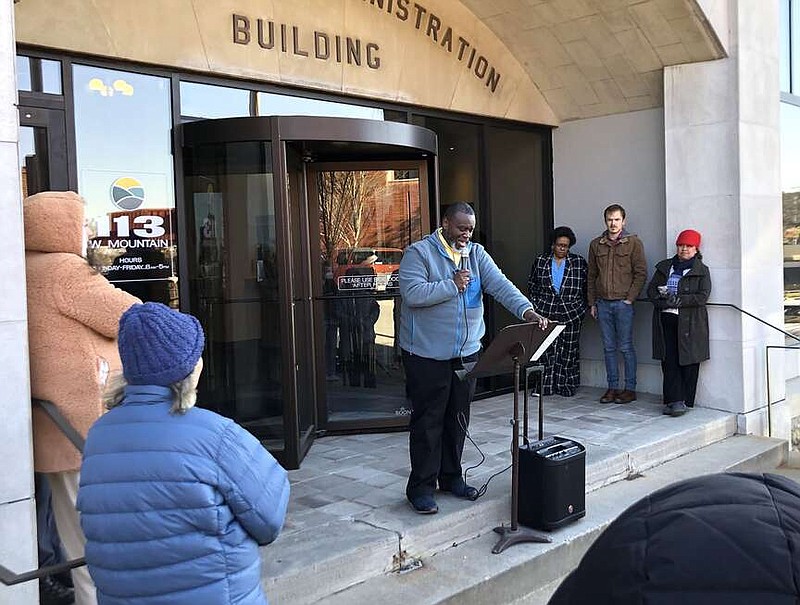FAYETTEVILLE -- City Council members on Tuesday agreed to tweak certain aspects of a draft resolution combining two proposals about housing policy.
Mayor Lioneld Jordan said he called for the workshop after hearing confusion among the council members during an initial discussion of two housing resolutions on March 19.
The first resolution would declare a housing crisis in the city and call for the creation of a task force for at least a year and a housing coordinator position to address the issue. It was sponsored by council members D'Andre Jones and Sarah Moore. Jones said much of its language came from a group of residents.
The second resolution touts the city's past and current efforts to alleviate housing affordability issues and asks for higher developer fees to pay for a new planning staff position. It was crafted by Mike Wiederkehr, but co-sponsored by Scott Berna, Sarah Bunch, Teresa Turk and Holly Hertzberg.
On March 19, the council spent more than three hours discussing potential changes to both resolutions and hearing public comment from more than 30 residents.
The workshop began about 6 p.m. and ended about 7:30 p.m. The council will discuss and potentially vote on the combined resolution during its next meeting Tuesday.
Senior Assistant City Attorney Blake Pennington prepared a combined resolution for the council to consider that takes elements from each. Asking to hire a housing coordinator was removed from the draft. Instead, the resolution asks to hire staff as needed to accelerate approval of residential projects.
The new draft also includes additional details for the proposed task force. It would have up to 11 members with expertise or interest in housing and planning, as well as representatives of nonprofits, developers, landlords and residents. The task force would review data regarding housing availability, recommend metrics to gauge the health of the housing market, identify regulatory and market barriers to the production of housing and propose policies for the City Council to consider.
The draft also added "whereas" clauses to the preamble of the resolution, such as a list of the city's past efforts to help with housing affordability that were largely included in Wiederkehr's resolution. It also mentions the increased enrollment at the University of Arkansas, Fayetteville, over the last several years and a lack of on-campus beds.
At the end of Tuesday's workshop, the council agreed the task force should consist of a range of seven to 11 members. The mayor would appoint the members with suggestions of candidates from the council. Council members also agreed to include another part from Wiederkehr's original resolution that clarifies city staff report to the mayor and not the City Council.
Moore said she wanted the combined resolution to stay focused on the purpose: to identify a housing crisis in the city and to put forth solutions. She expressed concern over pulling an existing staff member who already has plenty to do to work with the task force and emphasized a new position of some kind would be necessary.
"We have to be realistic about what the needs are there," Moore said.
Berna said he supported creating a task force but didn't want to give residents false expectations. The city, for instance, can't tell a property owner what to charge in rent, he said.
"I don't think anybody on this council does not recognize the struggles that are out there," Berna said. "Staff is working every day, tirelessly, and it concerns me we're diverting their attention on this, and are we losing focus?"
Wiederkehr gave a presentation during the council agenda-setting session right before Tuesday's workshop about factors that led to the local and national housing predicament. Factors included the federal government cutting financial support for affordable housing, the University of Arkansas increasing enrollment, the national housing bubble of the late 2000s and the covid-19 pandemic.

